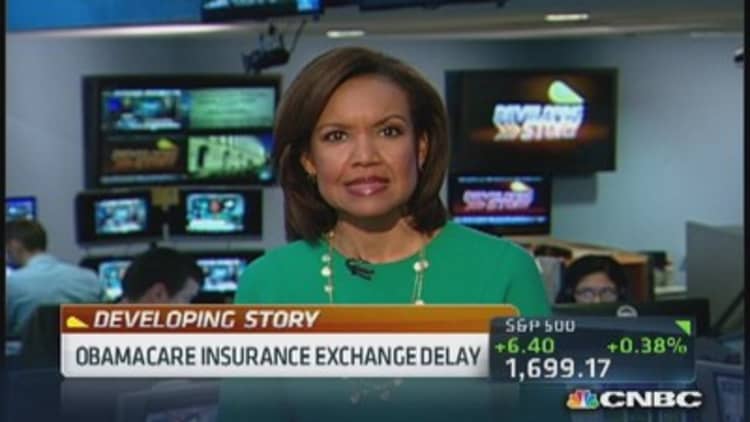Michael Sarafolean's workers help provide care for people with developmental disabilities. Over the last few years, taking care of his staff's health insurance needs has been a challenge because of rising premiums. Now, Obamacare is making him re-evaluate his benefits plan.
"Right now we offer a defined contribution model for our employees, where we contribute a set amount of money for employees to use to purchase individual policies," the CEO of Orion Corporation of Minnesota said.
With a staff of more than 125 full-time health aides, Sarafolean will now be required to offer insurance coverage under the Affordable Care Act or pay a fine. While he's been committed to helping his employees with their benefits and believes health insurance is important for recruitment and retention, his current stand-alone Health Reimbursement Arrangement does not comply with the new regulations because HRAs must now be part of a group insurance plan.
A hybrid approach
For 2014, he's taking advantage of the one-year delay in the employer mandate to experiment with a hybrid approach to health coverage, by providing premium assistance on private insurance and for those who enroll on the Minnesota's state health exchange.
(Read more: Call centers standing by for Obamacare boost)
"This year we'll be able to offer that—to look at both: the option that we're able to provide as well as whether or not they may be better off looking at the exchange plan," Sarafolean said.

"It's a confusing time and I think the employers are looking for different kinds of solutions, " said Abir Sen, CEO of Gravie, an online insurance start-up based in Minneapolis. Sen is helping Orion explore new benefit options, which could include ultimately dropping coverage and paying the $2,000 penalty per employee.
(Read more: Despite risks, Molina gambles on Obamacare rewards)
"It's much more economical for the employers to pay the fine than coverage. And at the same time it makes a lot more sense for the employees, as well," Sen said, "because the employees can go to the state exchange and get more money than the employer could have otherwise afforded to give them."
Staying competitive
But for Sarafolean, it's not a simple cost equation. More than 90 percent of firms his size offer health insurance coverage, according to the Kaiser Family Foundation 2013 Employer Health Benefits Survey.
"It's really, from my perspective, not just doing the calculation and choosing the option that costs less because cost is one factor," he said. "We also have to make sure that we're staying competitive in our market—offering employees benefits that they need and expect."
Because of those competitive issues, Tracy Watts, National Health Care Reform leader for health benefits firm Mercer, isn't sure small employers will move too quickly to shift their employees to the state insurance exchanges.
"Right now everything is so hypothetical," she said. "We will know more in the next couple of years whether or not this really is a great option for employees."
(Read more: 8 things to know about Obamacare)
The small business marketplaces on the state and federal exchanges will only be open for firms with 50 or fewer employees in 2014, but starting in 2017, businesses with more than 100 employees will also have an opportunity to access that exchange program.
"I think that we will learn a lot over the next few years about the public exchanges," Watts said.
Whether his employees ultimately choose the exchanges, or his company's plan, Sarafolean suspects one thing will not change under Obamacare—he'll continue to walk a tightrope when it comes to paying for employee benefits.
"Every dollar that we spend on benefits is a dollar that we probably can't spend on compensation," he said. "We have to be careful to make sure that we have those in the right balance."
—By Bertha Coombs. Follow her on Twitter @coombscnbc.


